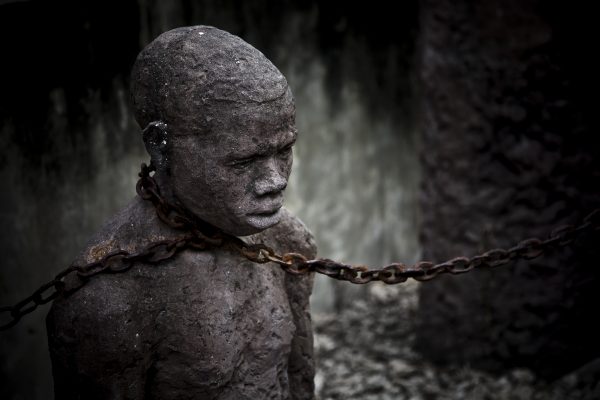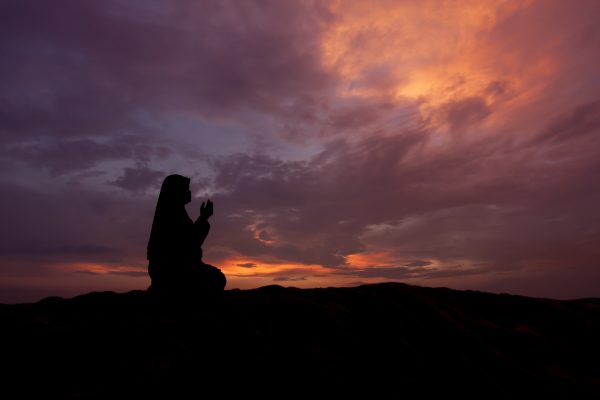Bilal ibn Rabah is one of the most revered companions in the Islamic world. Starting out as a slave, Bilal became the first muezzin of Islam and was appointed a seat in the Prophet’s government. A truly inspirational man and story!
Bilal ibn Rabah is one of the most revered companions in the Islamic world. Starting out as a slave, Bilal became the first muezzin of Islam and was appointed a seat in the Prophet’s government. A truly inspirational man and story!
When I think of Bilal ibn Rabah, the following verse from the Holy Quran springs to mind:
Seek help with steadfastness and prayer- though this is hard indeed for anyone but the humble.”
[2:45]
The situation for black people in Arabia was awful. As a slave, Bilal already had it difficult in Arabia. When the Prophet of Islam (PBUH) brought forward the religion and the Holy Quran, Bilal converted but not without difficulty. In this article, we will provide a short profile and biography of the great companion, Bilal (also known as Bilal Habashi).
Birth and Lineage
Bilal was born somewhere between 570-580 AD, roughly half a century before the hijra. Most are aware Bilal was African but what many may not know is that he’s also half Arab. His dad was from Arabia, whilst his mother lived in Ethiopia prior to marriage. Their names were Ribah and Hamama. Many Islamic historians that specialise in companion biographies say he had dark brown skin and was quite tall and slim. Bilal was one of three siblings.
Tribe and Early Life
Bilal’s tribe, Banu Jumah, where one of the numerous tripes in Quraysh. Prior to Islam, they were known for palmistry (reading people’s palms and telling them about their future).
Unfortunately, Bilal, his parents and siblings had low status, even amongst their own tribe members. All five were slaves to the chief of the tribe, Ummayah bin Khalaf.
Life as a slave was tough for Bilal. So, when the Prophet brought Islam and started telling people, they are all equal, that was naturally appealing to Bilal and other slaves.
Bilal Accepts Islam
Bilal had little or no hesitation in accepting Islam. Islam teaches that all people are the same and equal, and the only differentiator among them is their level of piety. The Islamic ideology was very attractive to Bilal, and he recited his shahadah and joined the Prophet’s ranks amongst the early conversions to Islam. He was approximately one of the first nine people to accept Islam.
Bilal is Persecuted
Naturally, his acceptance of Islam was disliked by his master. A society where everyone is deemed equal empowers the oppressed and puts the oppressor in a weaker position. Ummayah made attempts to force Bilal to revoke Islam, all to no avail.
Ummayah brutally tortured Bilal. It’s well-known he would make Bilal naked during the hottest hours of the day and make him lie down on a rock (that would have become very heated from the sun) and tell him to leave Islam. The rock was so heavy it would take multiple people to lift it and place it on Bilal, so one can imagine how excruciating the pain would be.
But Bilal’s conviction was such that he did not budge. He would keep screaming:
Ahad! Ahad! Ahad!”
Meaning God is the only one and would reject his owner’s idols. This torture allegedly continued for several days but Bilal did not budge. It’s these early companions of the Prophet Muhammad (PBUH) that built Islam. May Allah have mercy on them all.
The Prophet Emanicpates Bilal
Once news of Bilal’s state reached the holy Prophet, he told Abu Bakr to go and ‘buy’ him from Ummayah. Abu Bakr paid more than Bilal’s worth on the slave market. With the deal becoming profitable for Ummayah, he let Bilal go.
Bilal Migrates to Medina
Bilal spent many years in Mecca learning under the Holy Prophet. When the time came to migrate, he, like many other companions, headed to Yathrib (Medina’s name before Islam). Bilal belonged to the muhajireen group, those who had migrated from Mecca to Medina. The ansar in Medina were ready to welcome them with open arms. When the Prophet declared brotherhood between a muhajireen and ansar, he paired Bilal with an ansar by the name of Abu Rouwaiha.
Bilal Becomes the Muezzin
Bilal was handed the great honour of reciting the adhan. In Mecca, reciting the adhan was not possible as the polytheist Quraysh were in power. In Madina, the Muslims had their own state, which meant they could finally recite the Adhan out loud, as we will often hear when we’re in Muslim countries.
Because of his accent, Bilal found it difficult to recite the sh of ashahadu (I bear witness). Some laughed at him for this. Nevertheless, the Prophet showed his dissatisfaction at those who laughed and continued encouraging Bilal to recite the Adhan. Bilal had a beautiful voice, and it is said people rush to pray when they heard the Adhan.
Poetic Justice at the Battle of Badr
Bilal either took part in or was alive for all the battles the Prophet partook in. The Battle of Badr was the highlight of Bilal as a warrior, and through Allah’s divine justice, it was Bilal who landed the killer blow on his former master Ummayah bin Khalaf.
Bilal Recites Adhan in Mecca
Muslims were yearning to hear the Adhan in Mecca, the site of the Holy Kaabah. Their wish came true in 10AH when the Prophet finally conquered Mecca and told Imam Ali to remove all the idols from the Kaabah. Once the idols were destroyed, Bilal climbed to the top of the Kaabah and recited the Adhan.
Bilal’s Family Life
Much is known about Bilal’s acts in public. There isn’t much information available on his private life. What we do know is Bilal had three wives.
Bilal’s Role in Government
Bilal’s honesty and integrity were noted by the Prophet, which is why he became the treasurer of the Islamic state. He was in charge of distributing funds to the most vulnerable members of society, such as widows, orphans, travellers and anyone who did not have the financial means to support themselves.
Bilal After the Death of the Prophet
The Prophet’s death hit Bilal hard. So much so that he decided to stop reciting the adhan. Historians say that he only recited the adhan twice more between the Prophet’s death and his own death, once at the request of Lady Fatima and the other at the request of Umar ibn Khattab.
Historians note Bilal migrated to Damascus, Syria but aren’t sure when. It was likely during the caliphate of either Abu Bakr or Umar. And that’s where Bilal died and currently rests.
Bilal Granted Paradise
Bilal is granted paradise by none other than the Prophet, according to this hadith found in Sahih Bukhari:
At the time of the Fajr prayer the Prophet (ﷺ) asked Bilal, “Tell me of the best deed you did after embracing Islam, for I heard your footsteps in front of me in Paradise.” Bilal replied, “I did not do anything worth mentioning except that whenever I performed ablution during the day or night, I prayed after that ablution as much as was written for me.”





